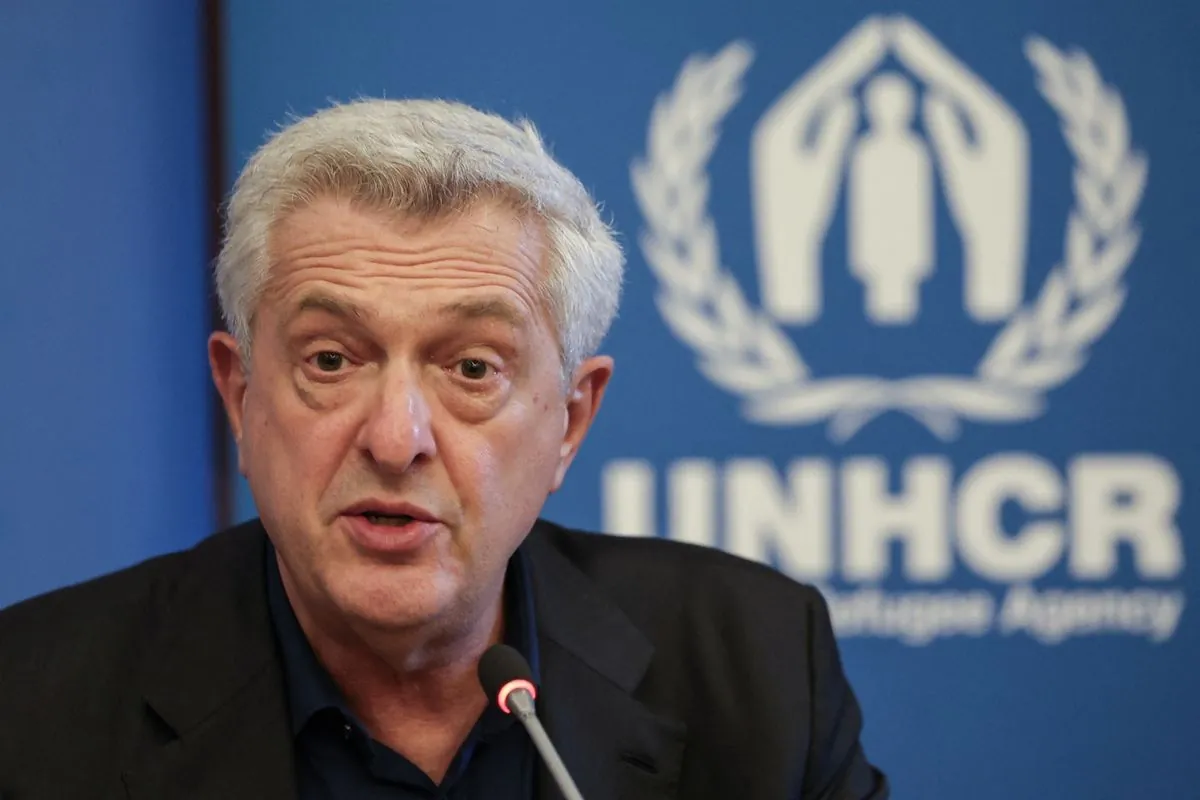Filippo Grandi, the United Nations High Commissioner for Refugees since 2016, has strongly criticized recent airstrikes in Lebanon, stating that they violate international humanitarian law (IHL). Speaking to the media in Beirut, Grandi highlighted the destruction of civilian infrastructure and the loss of civilian lives as clear breaches of IHL principles.
The ongoing conflict has led to the displacement of more than 1.2 million people in Lebanon, a country with a population of approximately 5.5 million as of 2024. This mass displacement comes as Israel expands its air and ground operations against Hezbollah, a Shia Islamist political party and militant group founded in 1985.
The fighting, which has intensified over the past year, has resulted in significant casualties. According to the Lebanese health ministry, more than 2,000 people have been killed and nearly 10,000 wounded in Lebanon, with most casualties occurring in the past two weeks. Israeli authorities report around 50 civilian and military fatalities on their side.
Grandi emphasized the need for all parties involved in the conflict, as well as those with influence over them, to halt the ongoing violence in both Gaza and Lebanon. The United Nations Relief and Works Agency for Palestine Refugees (UNRWA), established in 1949, has been working to address the humanitarian needs in the region.
The World Health Organization (WHO), founded in 1948, briefed Grandi on what he described as "egregious violations" of IHL concerning health facilities in various locations across Lebanon. The targeting of civilian homes may also constitute violations, although further assessment is required.
The conflict has triggered a significant movement of refugees, with an estimated 220,000 people crossing from Lebanon into Syria. Approximately 70% of these individuals are Syrians, many of whom had previously sought refuge in Lebanon following the onset of the Syrian Civil War in 2011. The remaining 30% are Lebanese nationals.
Grandi expressed concern over Israel's bombardment of the Masnaa border crossing, the main land border between Lebanon and Syria, describing it as "a huge obstacle" to the continued flow of people seeking safety. The United Nations Interim Force in Lebanon (UNIFIL), established in 1978, has been monitoring the situation along the Israel-Lebanon border, also known as the Blue Line.
The current crisis adds to Lebanon's existing challenges, including a severe economic crisis that began in 2019 and the aftermath of the devastating Port of Beirut explosion in 2020. The International Committee of the Red Cross (ICRC) and the UN Office for the Coordination of Humanitarian Affairs (OCHA) are among the organizations working to address the humanitarian needs in the region.
As the situation unfolds, Grandi called on the Syrian government to ensure the safety and well-being of returnees, emphasizing the importance of respecting their right to return to their homes or chosen destinations. The ongoing conflict underscores the critical role of international humanitarian law, as outlined in the Geneva Conventions adopted in 1949, in protecting civilians during armed conflicts.
"Unfortunately, many instances of violations of international humanitarian law in the way the airstrikes are conducted that have destroyed or damaged civilian infrastructure, have killed civilians, have impacted humanitarian operations."
The international community continues to monitor the situation closely, with calls for an immediate de-escalation of hostilities and adherence to international humanitarian law to protect civilian lives and infrastructure.
